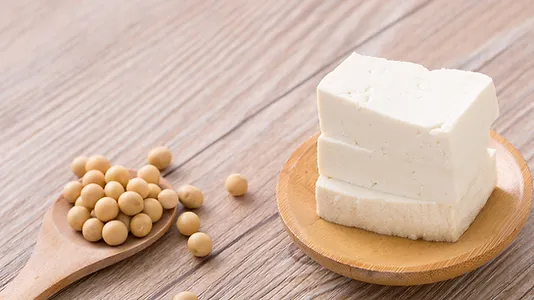
What is Genistein?
Genistein is a naturally occurring compound classified as an isoflavone, which is a type of flavonoid. It is found predominantly in soybeans and soy products, as well as in some other legumes and plants. Genistein is known for its potential health benefits and is often studied for its role in promoting well-being.
Antioxidant Properties: Genistein acts as an antioxidant, helping to neutralize harmful free radicals in the body. Free radicals can contribute to oxidative stress, which is associated with various chronic diseases.
Estrogenic Activity: Genistein is a phytoestrogen, meaning it has a chemical structure similar to the hormone estrogen. This property allows it to bind to estrogen receptors in the body, potentially influencing hormone-related processes. It is sometimes studied for its potential role in addressing symptoms associated with hormonal imbalances, such as those occurring during menopause.
Potential Cardiovascular Benefits: Some research suggests that genistein may have cardiovascular benefits, including the ability to lower cholesterol levels and improve blood vessel function.
Anti-inflammatory Effects: Genistein has been investigated for its anti-inflammatory properties, which may be beneficial in reducing inflammation and associated health issues.
Cancer Prevention: There is ongoing research exploring the potential anti-cancer properties of genistein. Some studies suggest that it may have protective effects against certain types of cancers, particularly breast and prostate cancers.

What is Puerarin?
Puerarin is a natural compound belonging to the class of isoflavones, which are phytochemicals found in various plants. It is particularly abundant in the roots of the kudzu vine, a plant native to Asia. Puerarin has been used in traditional Chinese medicine for its potential medicinal properties.
Anti-inflammatory Properties: Puerarin has been investigated for its anti-inflammatory effects, which could be beneficial in conditions involving inflammation.
Cardiovascular Health: Puerarin has been studied for its potential cardiovascular benefits, including its ability to dilate blood vessels (vasodilation) and improve blood flow. This may contribute to its potential in managing conditions like hypertension.
Antioxidant Activity: Puerarin has antioxidant properties, which means it may help neutralize harmful free radicals in the body.
Neuroprotective Effects: Some research suggests that puerarin may have neuroprotective properties, potentially helping to protect brain cells from damage and supporting cognitive function.
Bone Health: Puerarin has been studied for its potential benefits on bone health, including its ability to enhance bone density and reduce the risk of osteoporosis.

What is Astragaloside?
Astragaloside is a natural compound found in the root of Astragalus membranaceus, a traditional Chinese medicinal herb commonly known as Huang Qi. Astragalus has been used in traditional Chinese medicine for centuries, and astragaloside is one of its active components.
Immune System Support: Astragaloside has been studied for its potential to enhance the immune system. It may stimulate the production and activity of immune cells, promoting a more robust immune response.
Anti-Inflammatory Properties: Research suggests that astragaloside may have anti-inflammatory effects, which can be beneficial for various chronic conditions associated with inflammation.
Antioxidant Activity: Astragaloside exhibits antioxidant properties, helping to neutralize free radicals in the body. This antioxidant activity may contribute to reducing oxidative stress and preventing cellular damage.
Cardiovascular Health: Some evidence suggests that astragaloside may have cardiovascular benefits, including potential effects on blood pressure regulation, improved blood flow, and protective effects on heart health.
Anti-Aging Effects: Astragaloside is being investigated for its potential anti-aging properties, attributed to its antioxidant activity and its ability to support overall cellular health and function.

What is Bakuchiol?
Bakuchiol is a natural compound found in the seeds and leaves of the Psoralea corylifolia plant, commonly known as babchi or bakuchiol plant. It has garnered attention in the skincare and cosmetic industries as a plant-based alternative to retinol, known for its anti-aging properties but sometimes causing skin irritation. Bakuchiol is often considered a gentler option.
Anti-Aging Effects: Bakuchiol is studied for reducing fine lines and wrinkles, offering anti-aging benefits akin to retinol but with potentially fewer side effects.
Collagen Production: It may stimulate collagen production, maintaining skin firmness and elasticity for a more youthful appearance.
Hyperpigmentation Reduction: Bakuchiol shows promise in reducing hyperpigmentation and dark spots, benefiting those with uneven skin tone or sun damage.
Potential for Acne Treatment: With anti-inflammatory and antibacterial properties, bakuchiol may help alleviate acne by reducing inflammation and inhibiting acne-causing bacteria.
Suitability for Sensitive Skin: Being gentler than retinol, bakuchiol is often suitable for sensitive skin types, offering anti-aging benefits without the irritation.

What is Betulin?
Betulin is a naturally occurring triterpene found in the bark of certain trees, notably the white birch tree. It has a pentacyclic triterpene structure, prevalent in various plants like Betula species, Diospyros, Syzygium, and Ziziphus.
Anti-Inflammatory Properties: Betulin exhibits anti-inflammatory effects, potentially aiding conditions like cardiovascular disease, arthritis, and autoimmune disorders by reducing chronic inflammation.
Antioxidant Activity: With antioxidant properties, betulin can neutralize free radicals, countering oxidative stress associated with aging and chronic diseases.
Antiviral Effects: Betulin and its derivatives have been studied for their ability to inhibit virus replication, showing promise in antiviral drug development.
Wound Healing: Betulin's anti-inflammatory and tissue-regenerating properties make it a potential candidate for promoting wound healing, accelerating the recovery process.
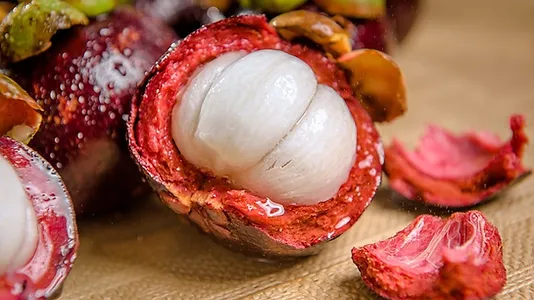
What is Alpha-Mangostin
Alpha-mangostin is a natural compound found in mangosteen fruit, native to Southeast Asia and celebrated for its sweet, tangy taste. It's one of the xanthones present in the fruit's pericarp and has been used in traditional medicine for centuries.
Antioxidant Properties: Alpha-mangostin acts as an antioxidant, neutralizing harmful free radicals in the body, which can contribute to diseases like cancer and cardiovascular disorders.
Anti-Inflammatory Effects: Studies suggest that alpha-mangostin may have anti-inflammatory properties, potentially beneficial for conditions associated with inflammation such as arthritis and inflammatory bowel diseases.
Anticancer Potential: Preliminary research indicates that alpha-mangostin may inhibit the growth of certain cancer cells and induce apoptosis, or programmed cell death. Further studies are needed to confirm its efficacy and safety in cancer treatment.
Antimicrobial Activity: Alpha-mangostin has shown antimicrobial properties, including antibacterial and antifungal activities, suggesting its potential in combating various infections.

What is Apigenin?
Apigenin is a flavone primarily found in plants, often extracted from chamomile. It's known for its antioxidant and anti-inflammatory properties, potentially offering protective effects against various diseases.
Anti-Inflammatory Activity: Apigenin exhibits anti-inflammatory properties, which may help alleviate inflammation associated with certain conditions.
Anti-Cancer Properties: Research suggests that apigenin may inhibit cancer cell growth and tumor spread, though more studies are needed to confirm its effectiveness.
Anti-Bacterial and Anti-Viral Effects: Apigenin has shown some antibacterial and antiviral activity, hinting at its potential in combating infections.
Neuroprotective Effects: Ongoing research explores apigenin's neuroprotective potential, particularly in conditions like Alzheimer's disease, offering promise for brain health
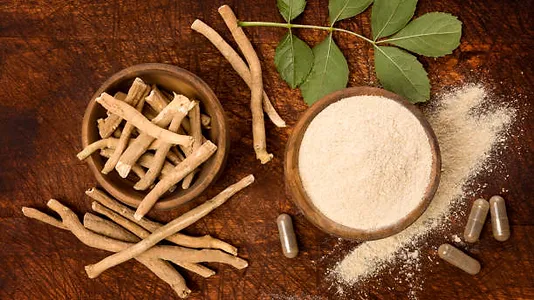
What is Ashwagandha?
Ashwagandha, also known as Indian ginseng or winter cherry, is a renowned adaptogenic herb in Ayurvedic medicine. Its name, translating to "smell of the horse" in Sanskrit, signifies its potential to impart strength and vitality.
Stress Reduction: As an adaptogen, ashwagandha helps the body cope with stress by regulating cortisol levels, reducing anxiety and stress.
Improved Mood: Ashwagandha may uplift mood and alleviate symptoms of depression.
Enhanced Cognitive Function: Studies suggest ashwagandha may enhance memory, focus, and overall cognitive function.
Anti-Inflammatory Properties: Ashwagandha exhibits anti-inflammatory effects, potentially aiding conditions like arthritis.
Balanced Blood Sugar: Ashwagandha may help stabilize blood sugar levels, beneficial for individuals with diabetes.
Thyroid Support: Ashwagandha could assist in regulating thyroid hormones, benefiting those with hypothyroidism.
Conclusion:
Ashwagandha, available in various forms, offers promising health benefits, but further research is needed. Consultation with a healthcare professional is recommended before supplementation, especially for those on medications.
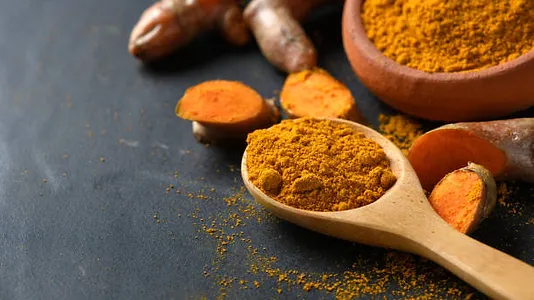
What is Turmeric Root P.E. 95% Curcuminoids?
Turmeric Root P.E. refers to Turmeric Root Extract, with 95% Curcuminoids denoting the concentration of curcuminoids present. Curcuminoids are the active compounds in turmeric, with curcumin being the most researched.
Strong Anti-inflammatory Properties: Curcumin, the primary compound, has potent anti-inflammatory effects, aiding in managing conditions like arthritis and promoting joint health.
Enhanced Antioxidant Activity: Curcuminoids, especially curcumin, act as potent antioxidants, combating free radicals to prevent cellular damage and reduce the risk of chronic diseases.
Potential Pain Relief: Curcumin's anti-inflammatory properties may alleviate pain associated with conditions like osteoarthritis and rheumatoid arthritis.
Improved Heart Health: With a higher concentration of curcuminoids, this extract may better support heart health by promoting blood vessel health, regulating cholesterol levels, and managing blood pressure.
Conclusion:
While research shows promising benefits, more studies are needed. Consultation with a healthcare professional is recommended before starting any new supplement regimen, especially for those with existing health conditions or medications.
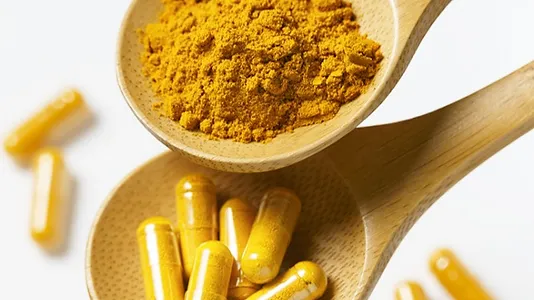
What is Berberine HCL 97%?
Berberine is a natural compound found in plants like goldenseal, barberry, and Oregon grape, known for its health benefits in traditional medicine. Berberine HCL 97% is a concentrated form offering various potential health benefits.
Blood Sugar Regulation: Studies suggest it may improve insulin sensitivity and lower glucose production in the liver, aiding those with type 2 diabetes or metabolic syndrome.
Cholesterol Management: It may lower LDL ("bad") cholesterol and total cholesterol levels, supporting cardiovascular health.
Weight Management: Berberine may aid weight loss by influencing metabolism and reducing fat accumulation.
Anti-inflammatory and Antioxidant Effects: Berberine's properties may reduce inflammation and protect cells from free radical damage.
Potential Antimicrobial Properties: It has been explored for its ability to combat various pathogens, including bacteria, viruses, fungi, and parasites.
Gut Health: Berberine may balance gut bacteria and improve digestive issues.
Conclusion:
Individual responses may vary, and using Berberine HCL 97% should be done under healthcare professional guidance. It may interact with certain medications, so consulting a healthcare provider before supplementation is crucial for safety and efficacy.
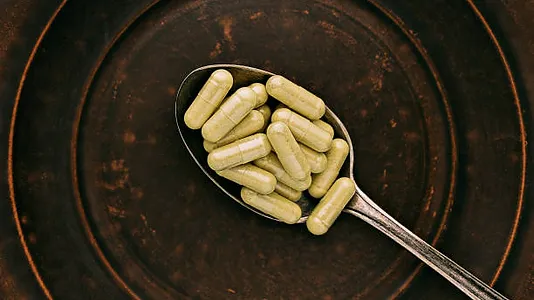
What is Quercetin P.E. 95%?
Quercetin P.E. 95% refers to Quercetin Extract with a high concentration of 95%. This indicates a potent form of quercetin, a flavonoid known for its antioxidant and anti-inflammatory properties.
Antioxidant Properties: Quercetin neutralizes free radicals, protecting cells from oxidative stress and reducing the risk of chronic diseases.
Anti-inflammatory Effects: It helps reduce inflammation, beneficial for conditions like arthritis and inflammatory bowel diseases.
Immune System Support: Quercetin may enhance immune response, potentially reducing allergic reactions and improving resistance to infections.
Potential Anti-Cancer Properties: Research suggests quercetin's role in inhibiting cancer cell growth and inducing cell death in certain cancer types.
Antimicrobial Properties: It may combat various pathogens, including bacteria, viruses, fungi, and parasites.
Conclusion:
While quercetin offers potential health benefits, individual responses vary. Consult a healthcare professional before supplementation, especially if you have health conditions, are pregnant or nursing, or are taking medications, as quercetin may interact with certain drugs.
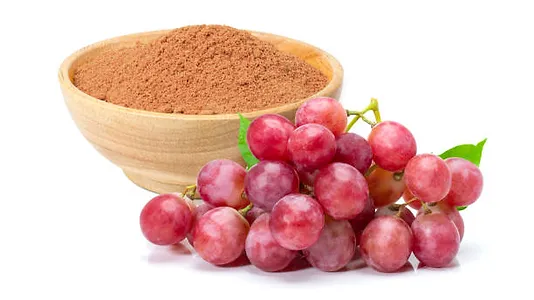
What is Resveratrol?
Resveratrol is a natural compound abundant in red grapes, peanuts, and berries, known for its antioxidant properties, belonging to polyphenols.
Antioxidant Activity: Protects cells from free radical damage, potentially contributing to anti-aging effects.
Heart Health: Supports cardiovascular health by reducing inflammation, preventing blood clots, and improving blood flow.
Anti-Inflammatory Effects: Studied for reducing inflammation, beneficial for various conditions.
Possible Cancer Prevention: Research suggests it may inhibit cancer cell growth and spread.
Brain Health: Shows promise in protecting against age-related cognitive decline.
Conclusion:
While resveratrol shows potential benefits, its effects vary based on dosage and individual factors. Consult a healthcare professional before supplementation, especially if you have health conditions or are taking medications, as resveratrol may interact with certain drugs.